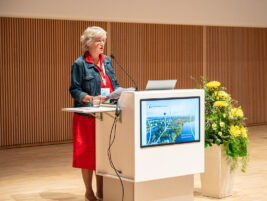
I remember being in Melbourne, attending the symposium on infants of rape at the Melbourne conference in 2004, reported in this Signal Issue, and thinking about how little I have ever thought of them in my clinical practice. I could not remember any conference about this specific topic, nor lectures, nor books…Still today, very little is written in the professional literature: Many articles can be found about rape, but from the woman’s perspective only. In a literature search I’ve done very recently, I could not find any developmental nor clinical followup of these infants. Even Amanda Jones’ beautiful case description has been published under the title “Levels of change in Parent-Infant psychotherapy”, and not “Infant born of rape”. Same for the painful topic of sexual trauma in infancy, which may be even rarer in the Western societies, than are infants born of rape? My next step after the Google search…was to look in…the Old Testament, the most ancient book about human psychology…and again, no mention of the infants born of rape nor victims of sexual abuse, though histories of incest and extramarital sexual relationships are there.
Rape is a very common “side effect” of wars: in the book named “A woman in Berlin”, the anonymous young woman who had lived in Berlin during the first weeks of the Russians’ invasion describes how she and all the other women around her had been raped and would get a bit of food in return. She was able to put in words the psychological processes she went through, starting with unsuccessful resistance and turning into dissociative states. The very idea of becoming pregnant did not really came to her mind, and anyway, abortion was the obvious solution. Furthermore, the very existence of the fetus goes against the raped woman’s dissociative defense mechanism for “not being here”.
Rape is indeed one of the weapons of war: in Bosnia for instance, it was a means to force women to bear the enemy’s child. In Rwanda, it was an ethnic cleansing weapon, and according to a report published in Pubmed (with no authors listed) in 1997, some 2000-5000 infants were born. One may think that, nowadays, with the flow of refugees who fled civil wars to end up in western countries, clinicians would see and treat at least some of these cases of mothers and infants born of rape.
How many of these deeply traumatized mothers and infants are left hidden and untreated? What is the developmental and emotional fate of these infants? Is disruptive and violent behavior the common outcome, as a manifestation of the infant’s projective identification with the aggressor? Or may we find the opposite reaction, meaning identification with the victim/the helpless mother, and if so, would we expect a depressed-like clinical condition?
To answer these bothering questions, we obviously need to detect these infants…but how many mothers will admit they have been raped? For so many, it is already quite difficult to admit the pregnancy was “just” unplanned and unwanted…
It becomes even more bothering when one realizes we may have these infants “under our nose” : how can we detect the “fruits” of rapes within the family, in contexts of domestic violence and incest?
Quite anecdotally, I have asked colleagues around me how often they have thought about finding these cases among their referrals, and the usual reaction I received was…a puzzled, somewhat embarrassed…as if feeling guilty…look and murmur “I don’t know really, I never had a case, I did not really think about this problem”..
Maybe, we are faced with parallel processes of projective identification: these infants are not very much in most of the clinicians’ mind either… like they were not in the mind of their progenitors at the time of the conception/the rape. Ultimately, they are in no one’s mind….
The late French psychoanalyst Francoise Dolto had introduced the concept of the joint progenitors’ Desire as being the origin of the infant’s basic wish to live. Infants born of rape are born of aggression and violence, while their mothers lay down as if dead. The cases described in this issue of The Signal fit very well Dolto’s conceptualization of the psychopathology that results from the total absence of Desire during the conception.
Still, these are just theoretical reflections. In order to know these infants, we need first to bear them in our minds. We may be surprised to find them much more easily than we think…Only then, we will be able to study their developmental pathways and responses to different therapeutic modalities.
Our first and modest step is to signal their existence in …The Signal.
Authors
Keren, Miri, M.D.
Editor, The Signal
Israel








